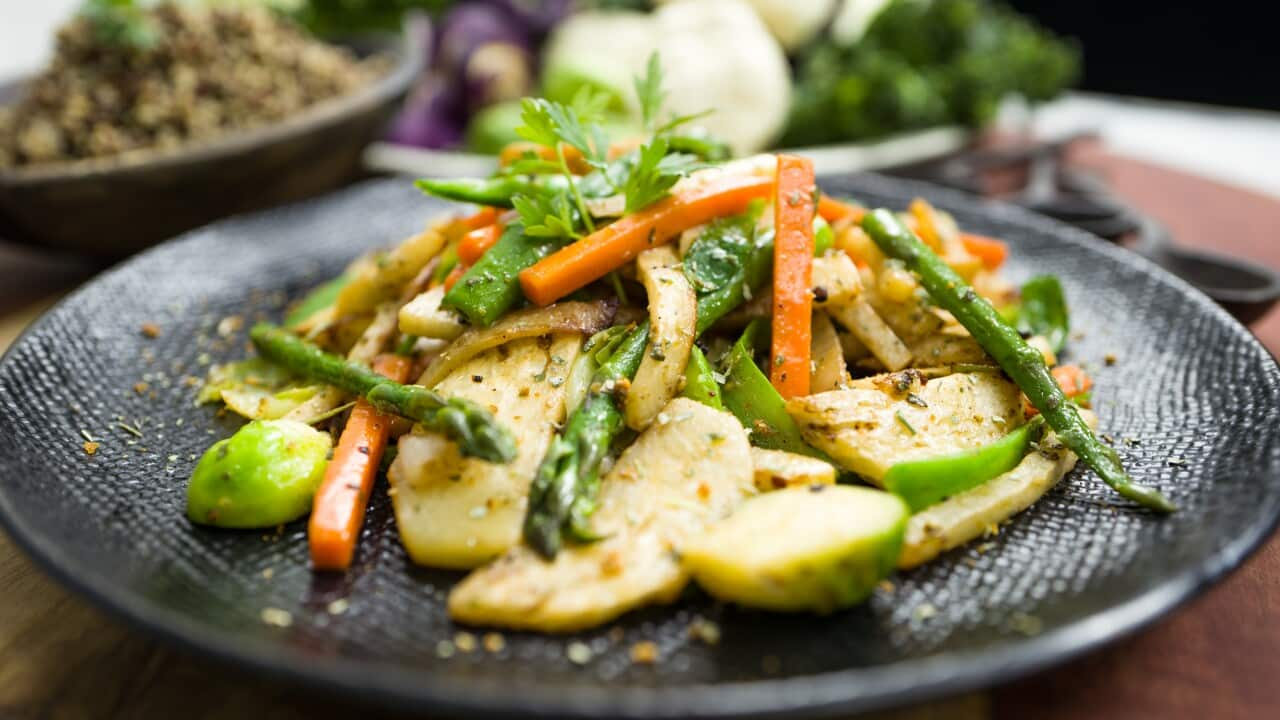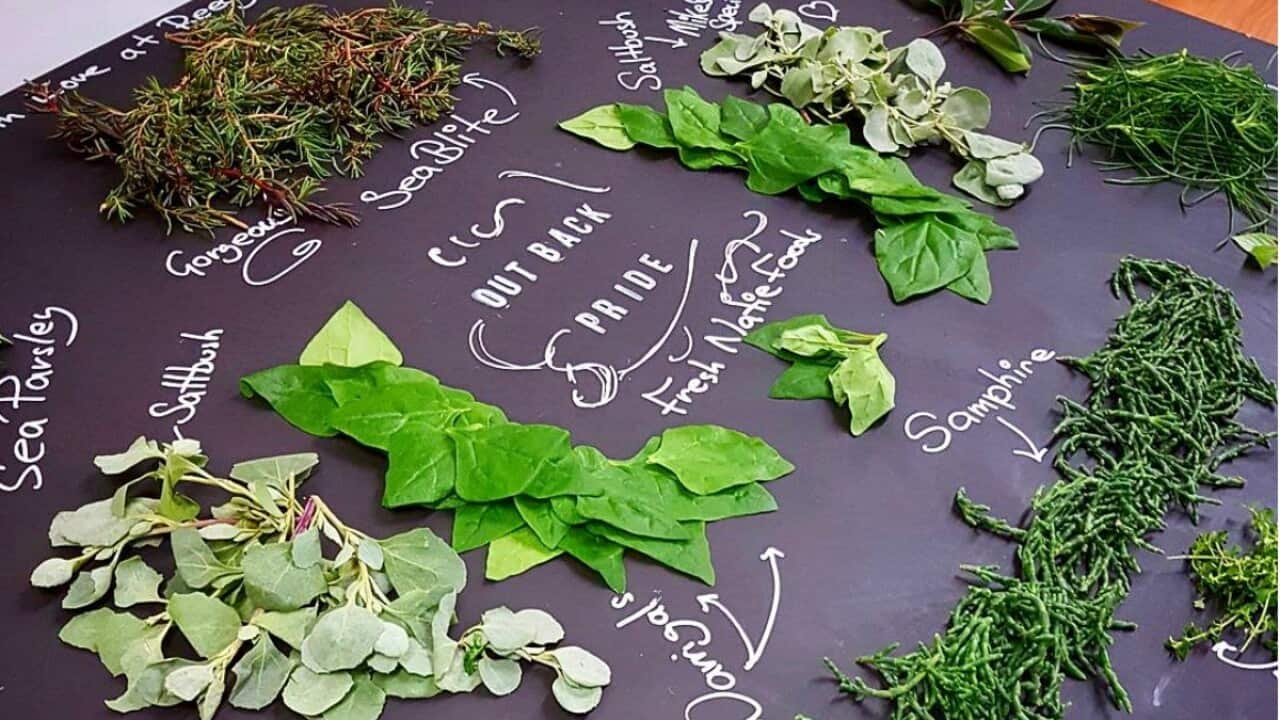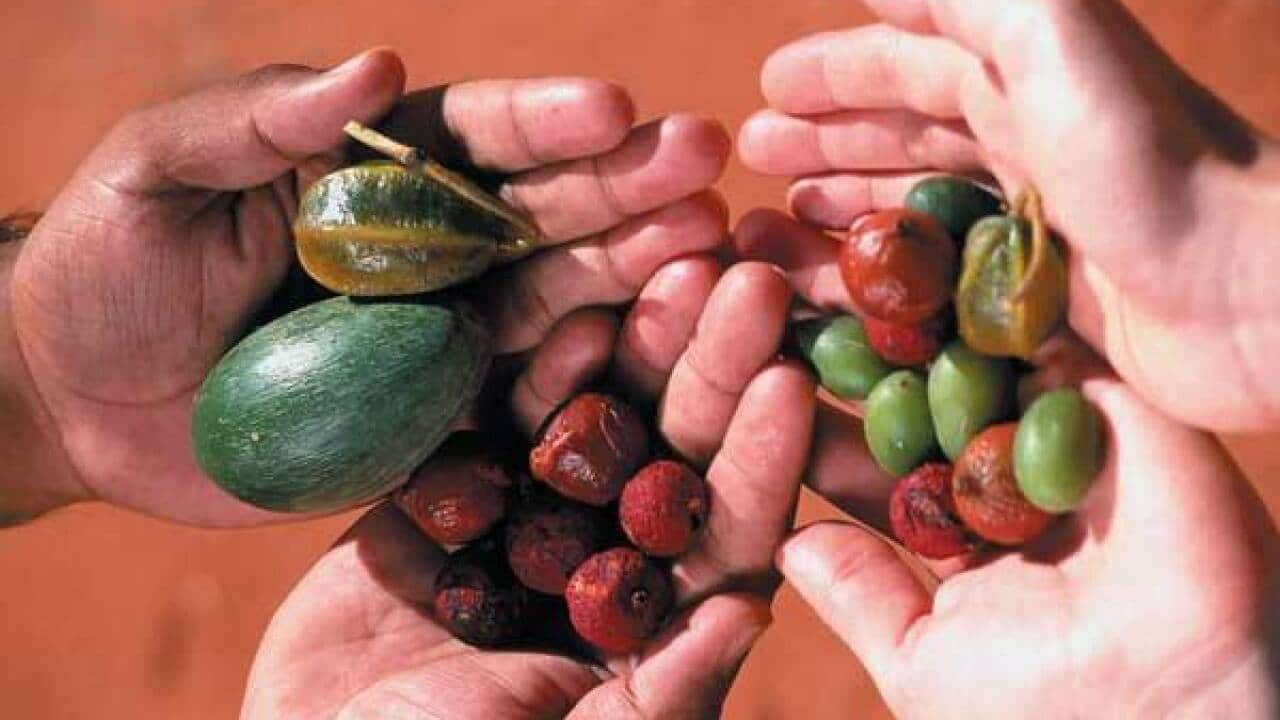Two things became incredibly popular during this coronavirus pandemic: bread making and online meetings.
With Google searches for sourdough and people connecting over Zoom , has cleverly capitalised on both trends with her digital damper-making workshops.
The owner of , an Indigenous cafe in Melbourne, came up with the concept when faced with the pandemic-trading that hit her industry in March. Only takeaway orders and home delivery are now allowed, so her online damper lessons are a social distancing-friendly way to maintain business while the cafe tables remain empty.
The webinars aren't just about kneading flour and water into three kinds of native bread, though. They're a celebration of Indigenous ingredients and Bero's cultural history. She begins her workshop by recounting her background: she's part of the Merriam People of Mer Island in the Torres Strait.
"That's what I remember most, we always went out and caught everything," she says. Every day before school, she'd walk onto the dark reef with a kerosene lamp and a spear, so she could spike fresh octopus with her weapon. She'd pickle it and save it for the next day.
"We always knew how to source our own food from such a young age," she says. "No one runs home and makes a sandwich. That doesn’t exist. You pick some fruit or you roast some fish and that's your snack. You're just eating off the trees." You didn't ask mum for lunch, because she'd tell you to hunt it yourself.
Her workshop also focuses on keeping Indigenous spices accessible. "It's about making it easy so that people can go, 'yeah, I can totally rock with some native ingredients,'" she says. "Half the people we come across, especially at Mabu Mabu, have never tasted any native ingredients. That's why I feel like we should be talking more about this."

Nornie Bero's damper-making webinars are a celebration of Indigenous ingredients and Bero’s cultural history. Source: Mabu Mabu
There's also a wattleseed version, which evokes an Indigenous coffee scroll. The final bread she teaches is flavoured with saltbush, "which I call black man's oregano".
Unlike sourdough, where keeping starter alive is a worry, "damper has always been the simplest thing", she says.
"You can make damper out of the cheapest flour out there and it'll still be delicious." You only need flour and water for the dough, and even if supermarket shelves are bare, you'll still find baking supplies at Mediterranean grocers or Turkish shops, she says.
Bero sells Indigenous spices at Mabu Mabu (and its ), which makes wattleseed and other native ingredients easier for people to track down. But if you're struggling to locate bush foods locally, be pro-active.
"Go out and ask your grocers for it. They can access it, it's actually there," she says. "They just won't buy it because the supply and demand is not there. The more people who ask for it, the more it will be on the shelf."

Fill your spice rack with native flavours. Source: Mabu Mabu
There are also tips on how to bake damper with banana leaf (a trick learnt from her grandmother) and she provides instructions on how to make a golden syrup butter for your bread. She shares a plant-based butter recipe, too, which is apt as all the damper recipes are vegan.
When borders get closed and shipping gets closed, this is the stuff we're going to look for in the future.
All in all, her workshop gives attendants a pandemic-friendly abundance: by combining just a few cups of flour and water, you end up with 18 serves of bread (six of each flavour). "You've got enough for your neighbours and yourself," she says.
And if that isn't enough, the Q&A part of her webinar is also generous: Bero is open to wide-ranging questions. During a session with the organisation, someone asked if she thought it was worth running her own business. She acknowledged that it's incredibly hard work, but "it's a great experience to be a part of – to work for yourself and your community".
These workshops will continue as Mabu Mabu runs its takeaway operation: sending out wattleseed massaman curries and kangaroo tail bourguignon.
"I'm an optimist," she says. Bero thinks these new offerings have been a positive addition, even if Mabu Mabu can't run as usual during the pandemic.
"When we reopen, we'll still have this," she says.










